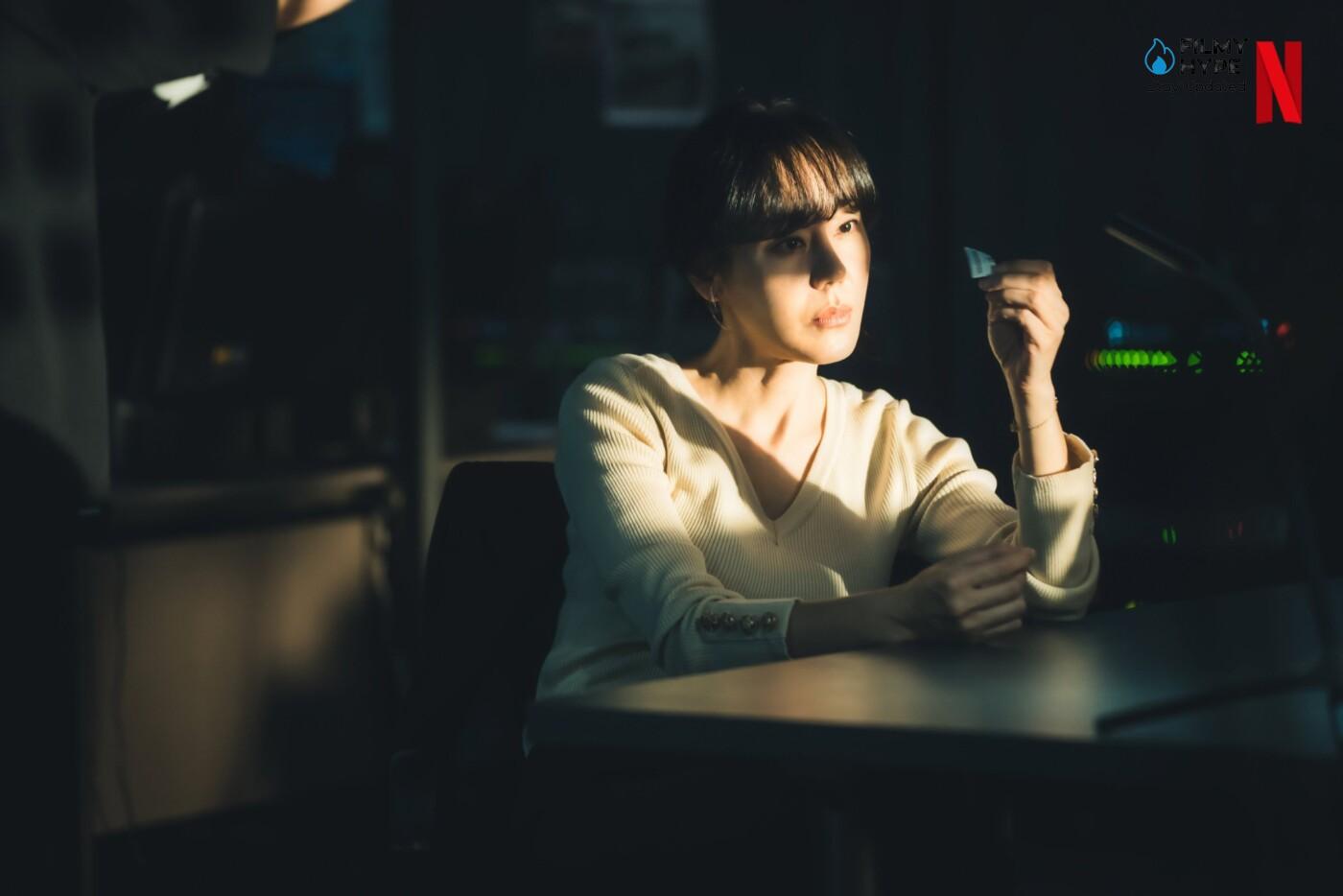Money Heist: Korea Part 2 Ending Explained: Does Berlin Survive and The Inspector Joins the Gang?
In June, a regional adaptation of one of its most successful series, Money Heist: Korea Part 2, premiered on Netflix. With practically the same story, only in the Asian country, the plot had its first season divided into two parts, with the first wave of episodes being a huge success and reaching the top of the platform worldwide. Echoing other Korean series that have become phenomena, the production now has its second part finally available. In the second part of the first season of Money Heist: Korea, the story gets even more exciting and unfolds in a series of twists as the robbers and the police face off in a showdown. And if you’re curious to know everything that happens and understand the end of this story, you can leave it to us and we’ll explain it straight! Ready? So, be aware that there are spoilers ahead.

Money Heist: Korea Part 2: Summary Recap
Let’s take a small and summary step back: despite the interesting dystopian trigger and the elements that enhance its cultural uniqueness, the plot of the first episodes is a déjà vu that differs little from the Spanish original, starting from the names of the characteristic figures of the main characters (here perhaps less exaggerated, compared to those of the European cousins). We had left the chief inspector Woo-Jin (played by Yunjin Kimu, a face also known to us Westerners for the role of Sun in Lost) who proposed that the Professor enter the Mint with a video camera capable of verifying the actual safety of the hostages. Once out, she finds in her pocket a piece of a burnt banknote, slipped secretly by the student (and daughter of the American ambassador) Ann Kim.
From here on, the inspector will begin to have the first (of many) doubts about the real intentions of the group of masked thieves. It is therefore not a “simple” robbery that they want to carry out: they are in fact printing new banknotes, and to do so they are trying to buy the necessary time. Meanwhile, from the inside, the robbery group realizes that one of its members is a traitor. The cohesion of the group, so scrupulously prepared by the Professor (the requisite on which he builds the whole plan is trust in the group and its leader) then begins to fall apart, in a game of accusations and reciprocal suspicions that jeopardize the good outcome of the operation. In this climate of tension, it is the charismatic character from Berlin (Park Hae-Soo, already known for his role in the equally successful Korean series Squid Game) to unleash all its ambiguous tones, magnetizing much of the dramaturgical power of the narrative on itself. It is around his character that the most relevant flashbacks are built, those that untie the most significant plot nodes and that constitute the skeleton of the real motivations that move the strings of a story which, despite the heist movie dress and you find them (extremely well-constructed) from an action series, it is a “political” story.

This is the submerged surface that emerges episode after episode: gradually the political and symbolic motive of the plan of the Professor and his brigade becomes more and more evident. A revenge movie that links personal motivations to ideological claims, in which Berlin and the Professor represent the two poles around which the thread of the narrative is knotted. The fraternal bond that unites them (taken from the original series) is modeled here according to the Korean context in which it was born: the two little brothers were separated during the family’s attempt to escape to the south. Berlin remained in the north and lived in a prison camp with aberrant conditions, while the Professor managed to reach the southern border together with his father. This is the story of a double meeting.
Money Heist: Korea Part 2 Ending Explained: A Game Changer
Early in the second part, the professor’s plan reaches its climax, resulting in a game-changer in the seemingly perfect crime. The intention for the gang to be seen as “political criminals” and to show “who the real bad guys are” has an effect, with them going from thieves to revolutionaries in the eyes of society. Playing the leader of the gang is Jitae Yu, who spoke to Newsweek and revealed whether he considers the teacher a hero or a villain. He said that this interpretation of the character is relative and that it depends on the time and the setting. The teacher, for example, lives in a coup d’état scenario, which makes the opinion about him seem positive, in a way.
The show’s political premise to establish economic cooperation between North and South Korea is even more open in Part 2, which makes the story very “Korean” and differentiates it from the Spanish series, set in a fictional setting in which the Korean peninsula is about to be reunified. The series also gains a new recurring theme song in its second part, an old Korean song whose free translation would be “To the Land of Happiness”, which captures the Korean sense of democracy and freedom and represents a rallying cry for the team and viewers of the production.
Does Berlin Survive and The Inspector Joins The Gang?
In the last episode, the professor rejoins the remaining team members in the underground escape tunnel they dug inside the vault after they entered the Mint. His cover is blown to both his lover Woo-Jin, who is a negotiator for the South Korean police task force, and the authorities tracking the entrance to the tunnel. Meanwhile, she was trying to come to terms with the loss of her brother Berlin, who was believed to have died after trying to stop the police from entering the tunnel. With the officers hot on their heels, the professor resorts to the only thing they can try at the moment to save the rest of the gang: another one of his perfect, successful plans.

The leader tricks the police into thinking that bombs were set in a public square — where there is a protest against corrupt politicians. However, instead, they manage to distribute piggy bank balloons filled with money (about 1 billion dollars) to everyone present. All the rush of people in the place to get the banknotes will result in chaos – which makes the team buy time to escape and disappear with all the money they managed to print at the Mint.
The Population Helps, Even Without Knowing It
Meanwhile, protesters who are fans of the robbers wear the same characteristic red jumpsuits and put masks over their faces, starting to march through the streets. It’s the moment when Berlin and Seoul emerge from a hole in the ground and silently join the crowd, the perfect cover for an escape. Woo-Jin, meanwhile, becomes suspicious about where the professor and his team fled after remembering a long train ride he dreamed of taking with her. It was for Kherson, a port city located in Ukraine.
With perfect intuition, she makes it to the train before it leaves and holds a gun to her lover’s head, confronting him. However, she is unable to pull the trigger and is paralyzed, which allows the professor to jump on the train and disappear before her eyes. The series ends with a return to the beginning – a familiar, but a new beginning – in the final scene. A year after the great heist and escape, Woo-jin finally travels to Kherson, taken there in a moment of nostalgia.
Flashback
There, she asks a stranger for somewhere to get coffee. Upon realizing that he doesn’t speak English and starts to walk away, she hears another voice very close saying that she opened a new cafe nearby and calling her to check out the place. The man in question is precisely the teacher, which leaves her quite surprised. The scene is quite emblematic, given that two months before the robbery took place, the professor invited the young woman to have coffee with him after he “accidentally” hit the back of her car.
Whoo-Jin tells the professor that he has a unique way of winning over clients, something very similar to what she said during their first meeting. “I wonder what you might have up your sleeve this time”, observes the officer, disturbed by the situation. “I have a grand plan in mind. Do you want to hear it?”, replies the professor, who announces that his plan will go down in history as “a revolutionary crime” — the same thing he had said earlier about his plan to rob the Mint.
With that, the question remains whether the meeting with Woo-Jin in Kherson was always part of the professor’s plans, as well as what will be this new great plan he has in mind. We’ll also likely be left with the whereabouts of the rest of the heist team and whether Woo-Jin will become a new member of the gang as an answer. All of this is in the second season of Money Heist: Korea, which has everything to be confirmed by Netflix. Anxious?






